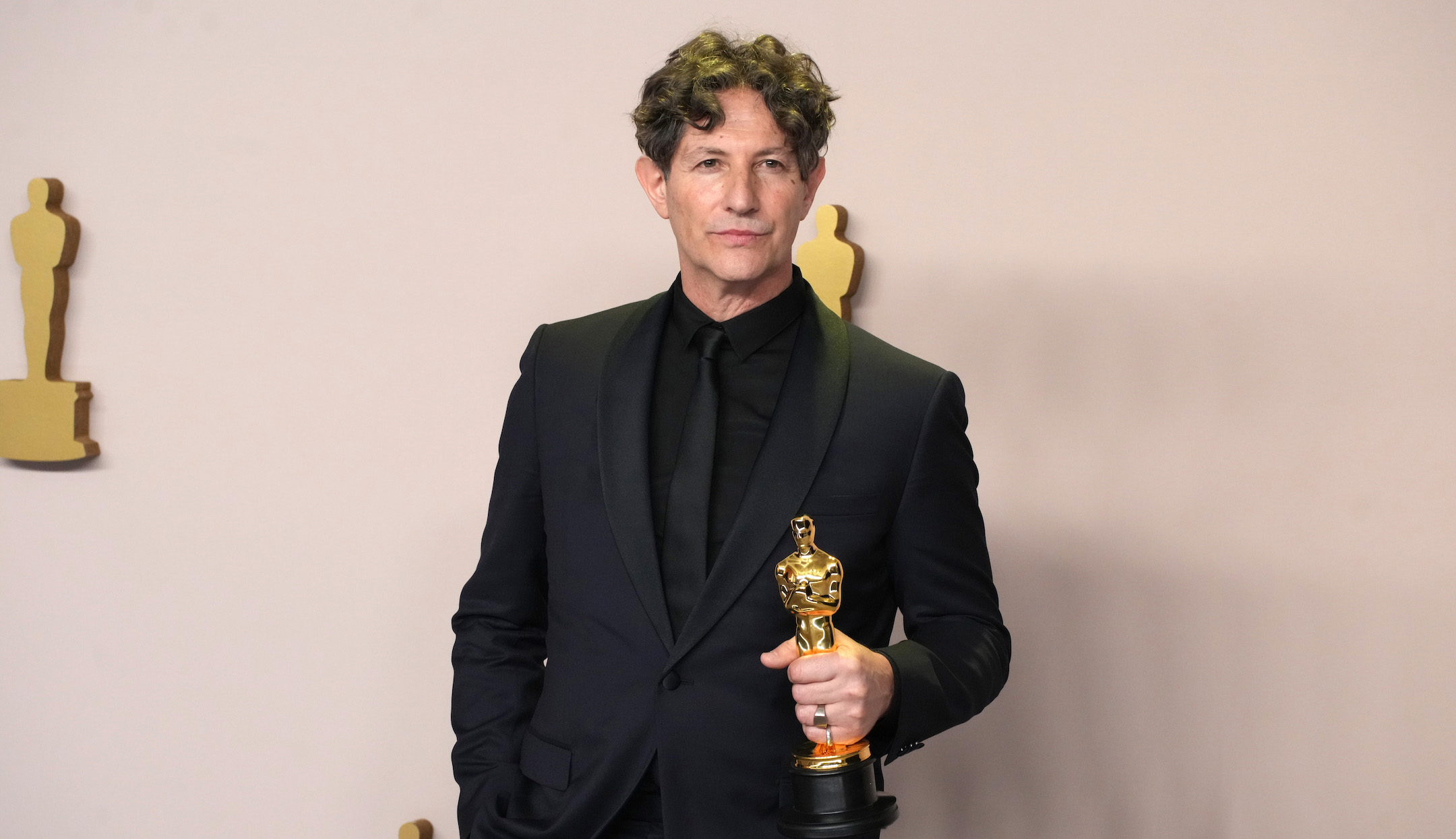((JR)) — A Jewish executive producer of the Oscar-winning Holocaust drama “The Zone of Interest” said he disagreed with director Jonathan Glazer’s speech at the Academy Awards ceremony criticizing Israel, while the Auschwitz Memorial issued a statement in its defense.
They were the latest reactions in what has become a prolonged firestorm over Glazer’s remarks Sunday. While accepting the best international feature award, the British Jewish filmmaker declared that he and his producers were “men who refute their Jewishness and the Holocaust being hijacked by an occupation which has led to conflict for so many innocent people, whether the victims of October the 7th in Israel or the ongoing attack on Gaza.”
Two of the film’s producers were standing on stage with Glazer: James WIlson, who previously criticized the Israel-Hamas war when accepting an award for the film, and Len Blavatnik, a pro-Israel Ukrainian whose spokesperson declined to comment about Glazer but said he is a steadfast supporter of Israel.
Now, at least one other producer associated with the film has weighed in: Danny Cohen, who appeared Thursday on a Jewish podcast to register his disagreement with the speech and call it a “distraction” from the film’s merits.
“I just fundamentally disagree with Jonathan on this,” Cohen, a former TV executive at the British Broadcasting Corporation, told journalists Yonit Levi and Jonathan Freedland, the hosts of the podcast “UnHoly: Two Jews on the News.”
“My support for Israel is unwavering,” Cohen continued. He called Israel’s ongoing war in Gaza “the responsibility of Hamas, a genocidal terrorist organization which continues to hold and abuse the hostages and which doesn’t use its tunnels to protect the innocent civilians of Gaza but uses it to hide themselves and to allow Palestinians to die.”
A scene from Jonathan Glazer’s film “The Zone of Interest” (Courtesy of A24)
The film itself, which won two Oscars, focuses on fictionalized versions of the Nazi Auschwitz commandant Rudolf Höss and his family, who carry on their normal lives while living next door to the death camps.
In light of its themes, Jewish groups including the Anti-Defamation League and an organization representing Holocaust survivors in the U.S. have been harshly critical of Glazer’s speech, accusing him of inappropriately comparing Israel to Nazi Germany. A former advisor to Israeli Prime Minister Benjamin Netanyahu called the director a “self-hating Jew.” (Glazer has not issued any public comments since the Oscars.)
Cohen didn’t go that far, noting that Glazer had the right to say what he wants. But he emphasized that he held a different view.
“I think that the war is tragic and awful and this loss of civilian life is awful, but I blame Hamas for that,” said Cohen, who said Glazer had coordinated his speech with Wilson. “And I think any discussion of the war without saying that for me lacks the proper context that any discussion about the war from my perspective should have.”
For Cohen, who recently spoke out against what he said has been systemic antisemitism at the BBC since the Oct. 7 attacks, Glazer’s comments distracted from the accomplishments of the film itself and could deter those who might have embraced it as a new tool of Holocaust education if not for the political firestorm.
“The film is an extraordinary triumph of filmmaking,” he said. “It’s one of the most remarkable films in decades, one of the truly great films about the Holocaust, and will survive as such for decades. And I think the discussion this week, and this moment of great recognition for the film with two Academy Awards, is not about the film but it’s about the speech. Jon spent 10 years making the film and has made something remarkable, but people are talking more this week about what he said for 30 seconds.”
Yet even as Cohen took Glazer’s speech to task, another major voice in the debate has also weighed in — supporting Glazer. On Thursday the director of the Auschwitz Memorial and Museum in Poland, where Glazer shot portions of the film and where he recently delivered a speech, posted a statement in the filmmaker’s defense to social media.
“In his Oscar acceptance speech, Jonathan Glazer issued a universal moral warning against dehumanization. His aim was not to descend to the level of political discourse,” Piotr M.A. Cywiński wrote. “Critics who expected a clear political stance or a film solely about genocide did not grasp the depth of his message.”
Cywiński did not specifically address Israel in his statement, but concluded, “‘The Zone of Interest’ is not a film about the Shoah. It is primarily a profound warning about humanity and its nature.”




